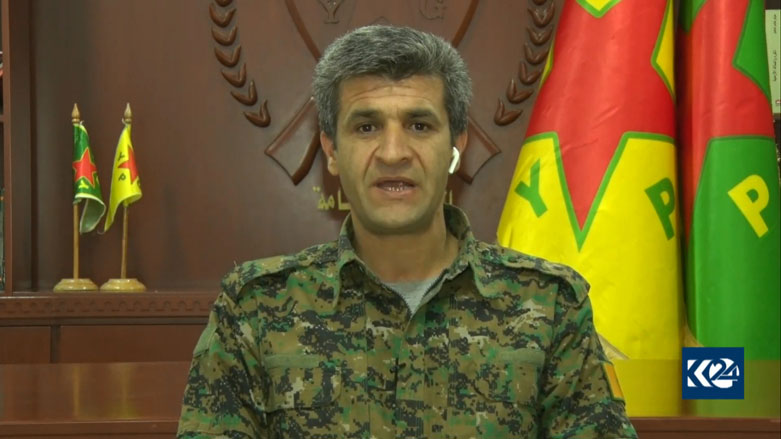Syrian regime cannot attack Kurdish areas, Russia has no more influence: YPG Spokesperson
A top Kurdish official on Sunday slammed the Syrian regime and Russia for threatening to attack Syria’s northeast.

QAMISHLO (Kurdistan 24) – A top Kurdish official on Sunday slammed the Syrian regime and Russia for threatening to attack Syria’s northeast.
“We don't believe that the [Syrian] regime has the ability to fight us, but it insists on carrying on with such threats all the time,” Nuri Mahmoud, the spokesperson for the People’s Protection Units (YPG), told Kurdistan 24.
The YPG, the military force of the self-administration in the northeast, including the all-women brigade known as the YPJ, have been the leading component of the US-backed Syrian Democratic Forces (SDF) which defeated the Islamic State east of the Euphrates in March.
Mahmoud further noted that they don’t seek conflict with any faction in Syria, but rather a democratic Syria.
“We seek a country where all sides, groups, and factions can meet and agree on a solution for Syria,” he said.
Mahmoud also criticized Russia’s role in Syria, stating the country had no more influence.
“Russian policy [in Syria] has turned out to be very superficial. Regarding Syria, it has adopted short-term goals and has agreed with Turkey to turn the Syrian crisis into a business,” he claimed.
“As such, we view Russia’s influence and position in Syria as very weak. Threats Russia has made outside Syria have no influence, even on the Syrian regime.”
He also pointed out to what he called Russia’s “silent acceptance” of the Turkish-backed opposition forces seizing parts of northern Syria.
“The Russian military is present in Syria but it has no influence on Damascus. Mind you, Damascus’ control is not that significant: There is Al-Qaeda in Idlib, and there is the Turkish occupation in the northwest as well,” he added.
“Although Russia is a Guarantor State and it claims to have been officially invited by the Syrian regime, the regime has been silent towards the occupation in Idlib, Afrin, al-Bab, Jarabulus and Azaz.”
The Kurdish-led authorities revived efforts to negotiate a deal with Damascus earlier this year in the wake of a US decision to withdraw its forces from their areas, hoping Moscow would mediate an agreement that would preserve their autonomy.
The landscape has shifted dramatically since then, however, with Washington deciding to maintain some troops in Syria and the Syrian government directing new threats of military action against the Kurdish-led forces if they do not submit to its rule.
Unlike the insurgent groups that have fought President Bashar al-Assad across much of Syria, the main Syrian Kurdish groups are not hostile toward him and affirm their objective is to preserve autonomy within the Syrian state.
Damascus has opposed the level of autonomy the self-administration seeks. The Syrian defense minister last month said the state would take back the Kurdish-held regions by force if its leaders did not submit to the return of state authority.
Editing by Nadia Riva